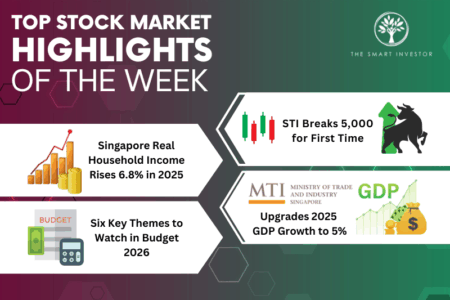What happens to stocks when risk-free rates are high? Theoretically, when risk-free rates are high, stocks should fall in price – why would anyone invest in stocks if they can earn 8%, risk-free? But as Yogi Berra was once believed to have said, “In theory, there is no difference between practice and theory. In practice, there is.”
Ben Carlson is the Director of Institutional Asset Management at Ritholtz Wealth Management. He published a blog post recently, titled Will High Risk-Free Rates Derail the Stock Market?, where he looked at the relationship between US stock market returns and US government interest rates. It turns out there’s no clear link between the two.
In the 1950s, the 3-month Treasury bill (which is effectively a risk-free investment, since it’s a US government bond with one of the shortest maturities around) had a low average yield of 2.0%; US stocks returned 19.5% annually back then, a phenomenal gain. In the 2000s, US stocks fell by 1.0% per year when the average yield on the 3-month Treasury bill was 2.7%. Meanwhile, a blockbuster 17.3% annualised return in US stocks in the 1980s was accompanied by a high average yield of 8.8% for the 3-month Treasury bill. In the 1970s, the 3-month Treasury bill yielded a high average of 6.3% while US stocks returned just 5.9% per year.
Here’s a table summarising the messy relationship, depicted in the paragraph above, between the risk-free rate and stock market returns in the USA:

So there are two important lessons here: (1) While interest rates have a role to play in the movement of stocks, it is far from the only thing that matters; (2) one-factor analysis in finance – “if A happens, then B will occur” – should be largely avoided because clear-cut relationships are rarely seen.
Note: An earlier version of this article was published at The Good Investors, a personal blog run by our friends.
This could be the fastest way to jump from a “newbie” investor to a seasoned pro. Our beginner’s guide shows everything you need to know to buy your first stock and beyond. Click here to download it for free today.
Follow us on Facebook and Telegram for the latest investing news and analyses!
Disclosure: Ser Jing does not own shares in any of the companies mentioned.




